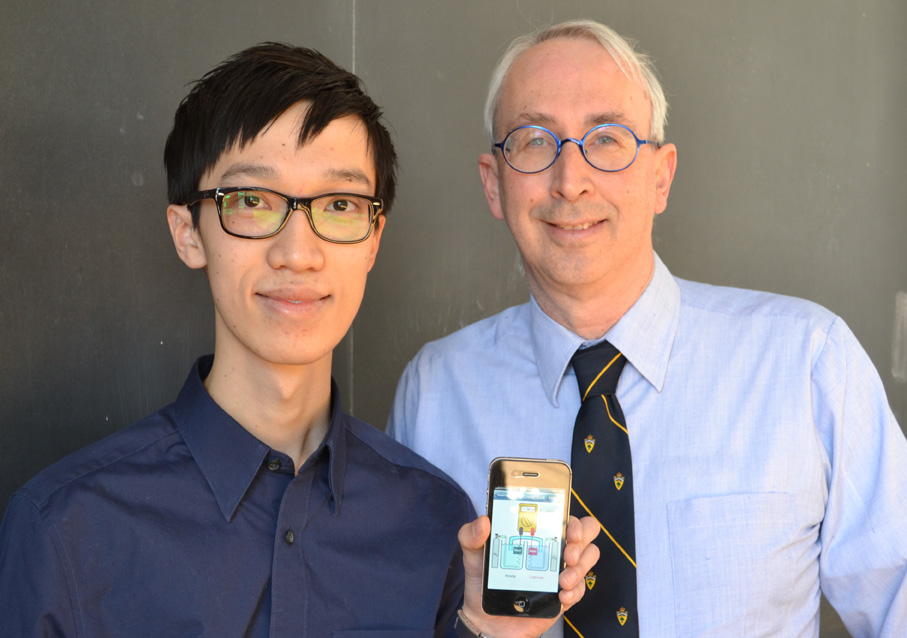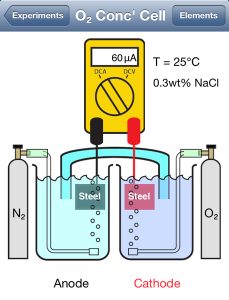Year 4 student develops smartphone application to enhance corrosion engineering learning
[sharexy]

Photo: Year 4 materials engineering student Jason Tam (left) and Professor Steven Thorpe (right)
January 30, 2013
It may not be as popular as Angry Birds, but the Corrosion iPhone app developed by Jason Tam (MSE 1T2 + PEY) is finding a grateful audience among professional engineers and engineering students.
Tam created the app last year when Professor Steven Thorpe asked his MSE 315 Environmental Degradation of Materials students whether anyone would be interested in developing an app that provided corrosion terminologies, formulae and benchmarking data.

Thorpe had originally hoped to find an existing app that students could use in the course, which primarily deals with electrochemical and corrosion behaviour of engineering materials in various applications. He could only find one less than ideal app in the iTunes store that didn’t even spell ‘corrosion’ correctly. “So I thought to myself, why not bring the course content into smartphones and engage students in a medium they fully comprehend?”Although Tam had no background in application development, he taught himself to use Objective C — the programming language for Apple applications — and completed a working draft of the program in only four months, just before he had to fly out to Nunavut for his year-long Professional Experience Year (PEY) term at Agnico-Eagle Mines Limited. He completed the app during his time off and on monthly 12-hour trips back home to Ontario.
The app sells for 99 cents on the iTunes app store, and all proceeds go to the George B. Craig Scholarship, an in-course award designated for an academically high-performing upper-year Materials Engineering student with demonstrated financial need. The app includes a glossary of more than 300 technical corrosion engineering terms, a list of constants, such as the Boltzmann constant, reference electrodes and schematics and even virtual corrosion experiments. For example, you can explore crevice corrosion on the Titanic.
“This new application changes the way we access reference information in the corrosion science and engineering field,” Professor Thorpe says. “I cannot thank Jason enough for his dedication and hard work in developing this digital resource. This is a remarkable step in moving one area of the materials science and engineering discipline forward into the 21st century.”
Non-iPhone users have not been forgotten. An Android version is in the works, and MSE 315 students are still able to access textbooks and other traditional materials. And no, students can’t use the iPhone app during the course’s final exam.